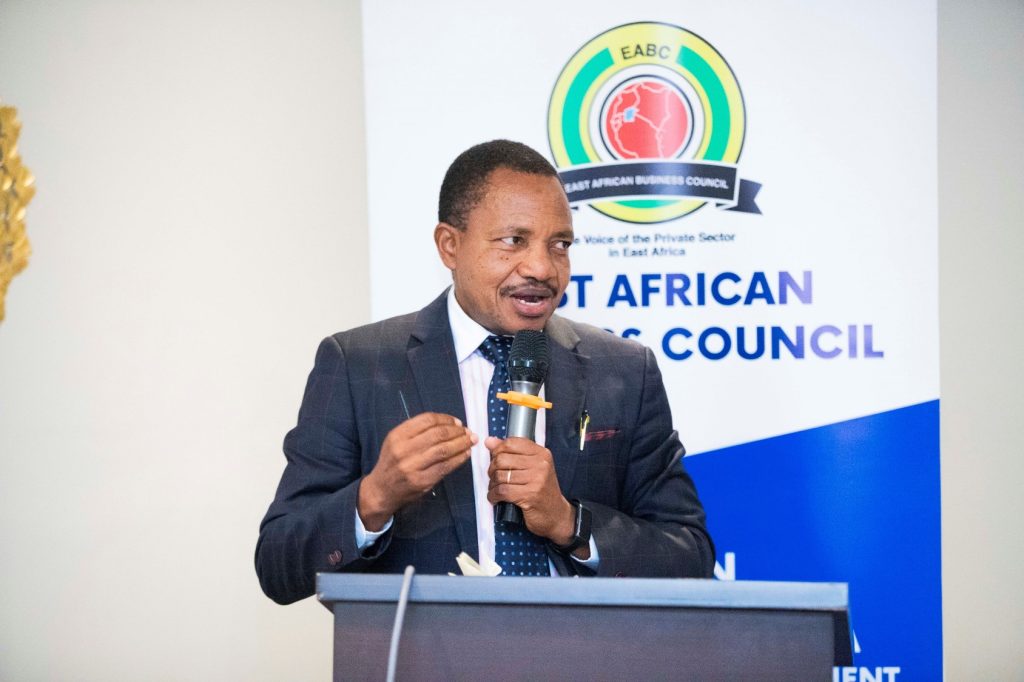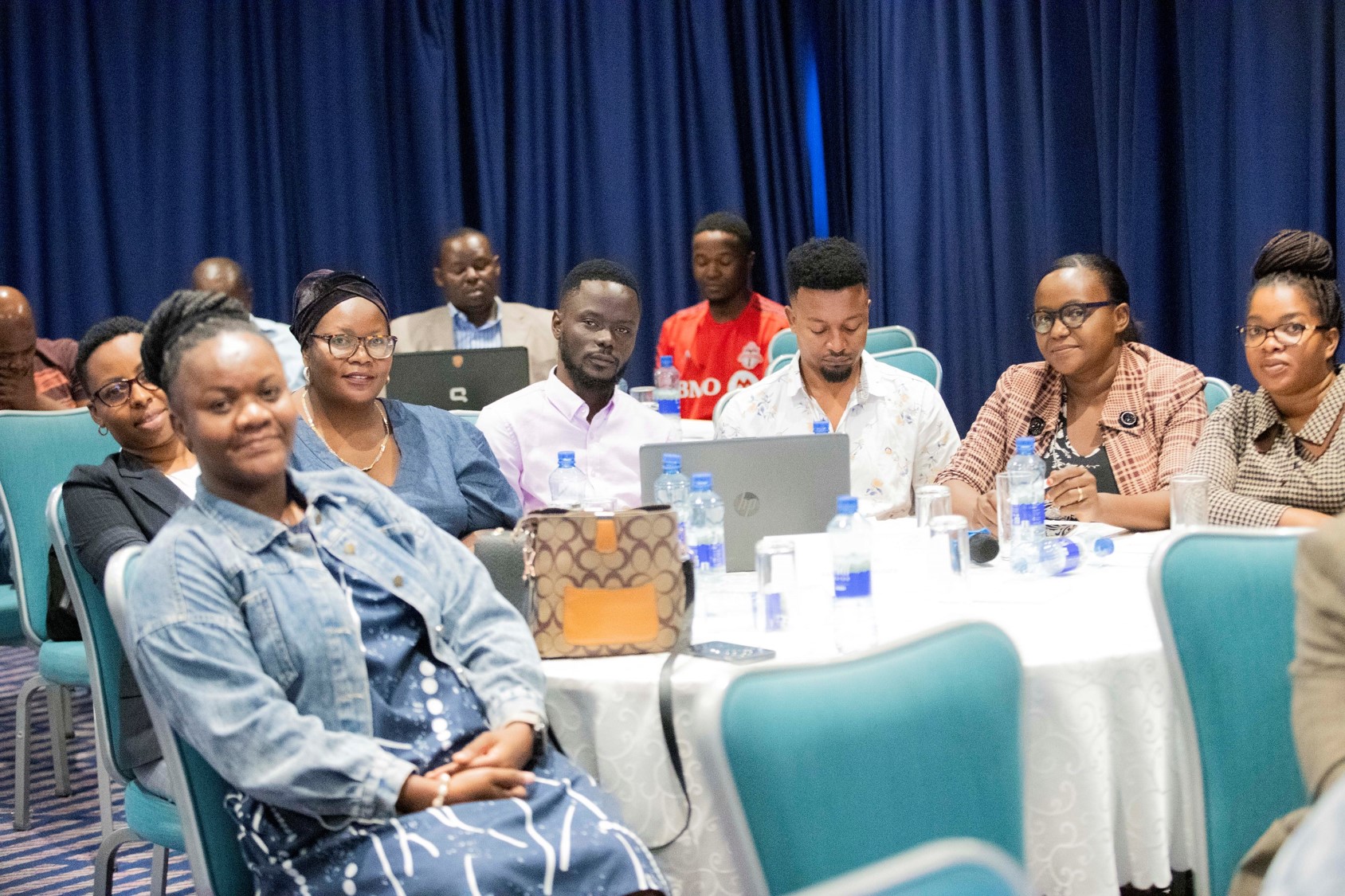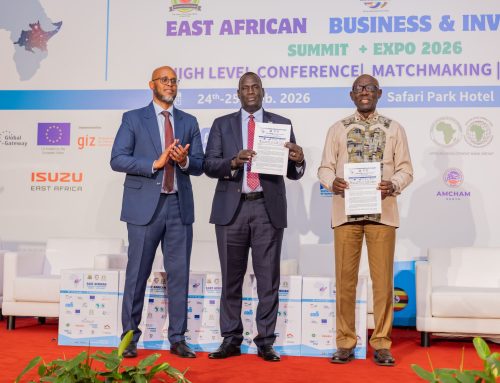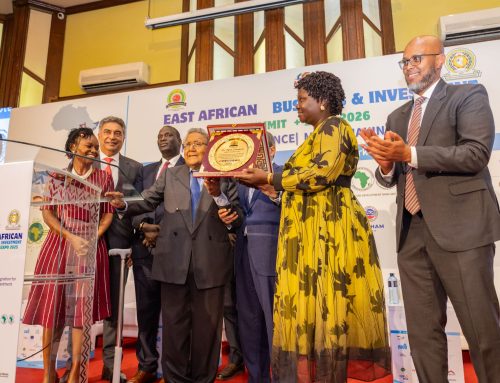- Tanzania’s goods exports to Africa at USD 2.65 billion in 2023
Dar es Salaam, Tanzania, 18th October 2024 – The East African Business Council (EABC), in collaboration with the Team Europe Technical Assistance Facility to Support the AfCFTA and Continental Economic Integration (EU-TAF), has trained more than 50 small and medium-sized enterprises (SMEs) to enhance their understanding of the African Continental Free Trade Area (AfCFTA). The training covered key initiatives under the agreement, including the Guided Trade Initiative (GTI), the AfCFTA Adjustment Fund, and value chain integration.
This initiative aims to equip SMEs with the necessary tools to access the extensive continental market of 1.3 billion consumers. Ultimately, this effort seeks to strengthen SMEs’ capacity, positioning them for greater success in a competitive regional marketplace.
 In his opening remarks at the training, Mr. Raphael Maganga, CEO of the Tanzania Private Sector Foundation (TPSF), stated, “With a combined GDP of an estimated US$3.4 trillion, the pact links 1.3 billion people living in different parts of the continent.” While this presents an opportunity for corporates and SME traders to export products across the continent, it is important to empower businesses with the tools and knowledge needed to access the market and compete with their counterparts, he added.
In his opening remarks at the training, Mr. Raphael Maganga, CEO of the Tanzania Private Sector Foundation (TPSF), stated, “With a combined GDP of an estimated US$3.4 trillion, the pact links 1.3 billion people living in different parts of the continent.” While this presents an opportunity for corporates and SME traders to export products across the continent, it is important to empower businesses with the tools and knowledge needed to access the market and compete with their counterparts, he added.
 Mr. Clement William Kamendu, Chairman of the Tanzania Shippers Council (TSC), emphasized, “We must work together to reduce transport and logistics costs to ensure we remain competitive.” He noted that due to such barriers, intra-African trade accounts for only 16% of Africa’s total trade volume, compared to 57% in Asia and 68% in Europe.
Mr. Clement William Kamendu, Chairman of the Tanzania Shippers Council (TSC), emphasized, “We must work together to reduce transport and logistics costs to ensure we remain competitive.” He noted that due to such barriers, intra-African trade accounts for only 16% of Africa’s total trade volume, compared to 57% in Asia and 68% in Europe.
 In his remarks on behalf of EABC Ag. Executive Director Mr. Adrian Njau, Mr. Zephania Shaidi, EABC’s Membership and Business Development Manager, encouraged Tanzanian businesses to look beyond local markets and seize continental trade opportunities under the AfCFTA.
In his remarks on behalf of EABC Ag. Executive Director Mr. Adrian Njau, Mr. Zephania Shaidi, EABC’s Membership and Business Development Manager, encouraged Tanzanian businesses to look beyond local markets and seize continental trade opportunities under the AfCFTA.
“In 2023, Tanzania’s goods exports to Africa stood at USD 2.65 billion, and imports at USD 1.5 billion according to International Trade Centre,” he said. He added that the continent’s participation in global value chains is low and primarily driven by commodities. To advance up the value chain, Africa needs value addition, industrialization, improved infrastructure, and the actualization of an integrated market under the AfCFTA agenda.
He elaborated that the East African Business Council is committed to enhancing the capacity of the EAC private sector to trade under the AfCFTA and, through the European Union Technical Assistance Facility, will roll out similar workshops across other countries.
The AfCFTA prioritizes key value chains to drive intra-African trade and industrial growth. These include agriculture and agri-processing, pharmaceuticals, automotive, transport and logistics, and textiles and apparel. By focusing on these sectors, the AfCFTA aims to create jobs, boost regional trade, and strengthen Africa’s global competitiveness.
The African Export-Import Bank (Afreximbank) and the AfCFTA Secretariat have already established the AfCFTA Adjustment Fund, with operations of the Fund domiciled in Rwanda. The Fund is expected to support countries and private entities through financing, technical assistance, grants, and mitigation and compensation funding during their transition to the AfCFTA trading regime.
The SMEs engaged in discussions on value chain analysis to improve their products and services with the goal of discovering gaps and opportunities to enhance operational efficiency, resource utilization, financial performance, profitability, product quality, and sustainable competitive advantage in light of the AfCFTA.
The event brought together over 50 private sector representatives from diverse industries, including manufacturing, agro-processing, SMEs, creative industries, transport, and government officials.




